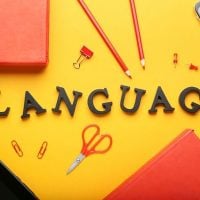Deadline: 1-Sep-21
The 2021 Center for Health Journalism Data Fellowship is designed for skilled journalists who want to learn to mine data sources to reveal key insights essential to high-impact journalism.
The program offers professional reporters an opportunity to learn to acquire, analyze and produce visualizations of data that can help their audiences understand key health and child welfare developments. Fellows can be beat reporters focused on health, education or children’s issues or general assignment reporters with a demonstrated interest in reporting on these themes.
Because of the continuing pandemic, the 2021 Data Fellowship will be held on the Zoom platform.
Priority Areas
- From journalists from outside California, we’re especially interested in proposals that investigate and explore:
- The racial, ethnic and geographic health disparities that are emerging each day as the pandemic continues and how they impact vulnerable children and families
- The role of systemic racism in influencing child and family well-being
- Unequal access to economic and social welfare and health relief and recovery opportunities for families with children
- The performance of local, state and federal government health agencies and nonprofit organizations during the crisis on issues including child welfare, juvenile justice and child health and well-being issues
- The impact of chronic stress, poverty and childhood trauma on child development
- The intersection between partner violence and child abuse
- The role of policy in improving prospects for children
- Child illness, injury and mortality trends
- The intersection of race/ethnicity and/or class in child and family outcomes
- Strengths-based approaches to improving outcomes for vulnerable children and families
- Creative financing and cross-agency strategies to treat and prevent the impacts of child maltreatment on children and families
- Policy options to address the longstanding weaknesses in their social and health safety net that have been thrown into sharp relief by this crisis and that create uneven outcomes and opportunities for children and their families
- Innovative solutions for any of the challenges described above
- For California Applicants:
- For the 2021 Data Fellowship, the Center seeks proposals that explore:
- The influence of systemic racism on health care
- Health-related environmental justice issues
- Health system performance and quality of care
- Issues around mental health and opioid use
- Health effects of housing insecurity, evictions or homelessness; lack of transportation; air pollution; and neighborhood violence
- The school environment and the emotional health of children, including trauma-informed approaches and efforts to ensure paths to success for youth
- Mental health and substance abuse
- Health care costs and health care financing
- The patient experience
- The health care workforce
- Health care coordination
- End-of-life and palliative care
- Telemedicine and the use of technology in health care delivery
- Data transparency and the health care industry
- Maternity care
- Cancer care
- The disproportionate impact of COVID-19 on various racial or ethnic groups or types of workers
- The health and mental health effects of unequal access to economic relief and recovery opportunities
- The performance of health agencies and nonprofit organizations that serve disadvantaged communities
- Innovative policy options to address longstanding weaknesses in safety nets
- People experiencing homelessness
- Frequently hospitalized patients, including those who regularly use emergency rooms as a source of care People with significant behavioral health needs, including people with serious mental illness, serious emotional disturbance, or substance use disorder
- People with complex physical or behavioral health needs who are transitioning from jail or prison
- Seniors and people living with disabilities, including those at risk for institutionalization and eligible for long-term care, as well as those living in nursing facilities and wishing to transition to the community
- Children with complex medical conditions, such as cancer, epilepsy, or congenital heart disease
- Children and youth in foster care
Benefits
- Data Fellows receive five days of intensive training on data acquisition, cleaning, analysis and visualization, as well as an introduction to important data sets that can serve as the basis for groundbreaking journalism.
- They hear from leading data journalism experts about how to make successful Freedom of Information Act (FOIA) requests and gain insights on how to pair original data analysis with compelling narratives.
- The 2021 Data Fellowship will provide training tracks tailored to the skill levels of participating journalists.
- Each Fellow is required to propose an ambitious investigative or explanatory reporting project to undertake in the six months following the training. Fellows return home from the training with grants of $2,000 to support reporting and data acquisition costs.
- For five months, Fellows receive guidance from expert data journalism mentors as they complete ambitious explanatory or investigative Fellowship projects built around data – reporting that impacts policy and spurs new community discussions.
Eligibility Criteria
- Applicants must demonstrate a minimal skill level in Excel or take an online course on Excel. Since the Fellowship is highly interactive, Fellows must have access to a computer and pre-load it with the Excel and Tableau software that will be used during the training. (If you don’t already have this software, they will provide advice about how you can get it for free.)
- They prefer that applicants have a minimum of three years of professional experience; many Fellows have decades. Journalists writing for ethnic media are strongly encouraged to apply. Proposals for collaborative projects between mainstream and ethnic news outlets receive preference, as do projects produced for co-publication or co-broadcast in both mainstream and ethnic news outlets.
- Freelancers who apply should earn the majority of their income from journalism. Students and interns, as well as journalists based outside the United States, are ineligible.
For more information, visit Center for Health Journalism.
For more information, visit https://centerforhealthjournalism.org/event/2021-data-fellowship-0









































